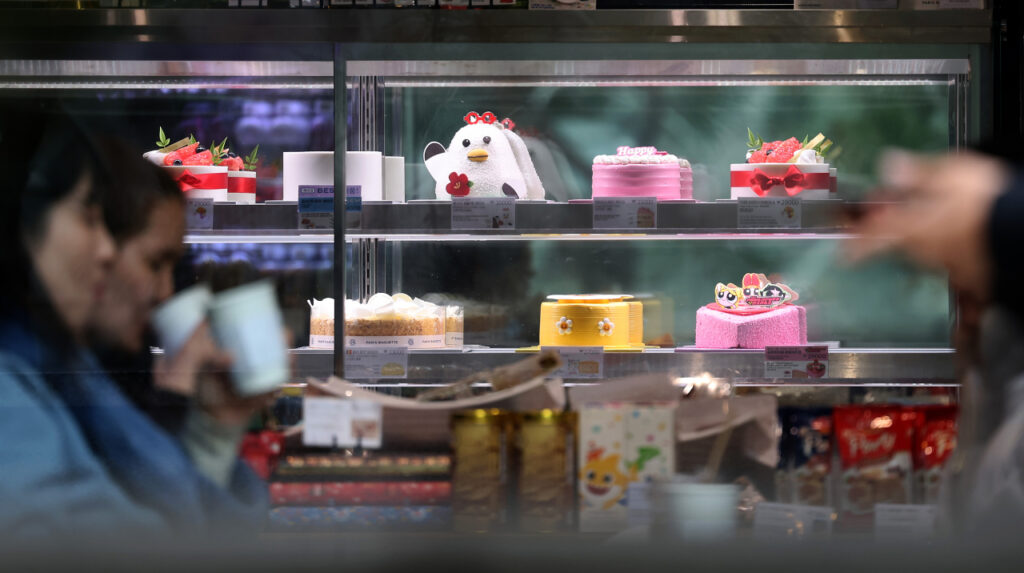Luxury cakes have emerged as seasonal highlights in South Korea’s hotel industry, appealing to consumers looking for something special for Christmas, but their high prices have drawn praise as well as criticism.
On November 25, Hotel Shilla unveiled a “luxury” Christmas cake priced at 400,000 won (approximately 28,000 yen), a 30% increase in price from last year’s Christmas cake, which was the hotel’s most expensive cake. This year’s version includes 25% more premium winter truffles and Château d’Yquem dessert wine, further enhancing the complexity of flavours, the hotel said.
Despite the high price, pre-orders have already sold out, with many customers making reservations weeks in advance, the hotel said. A Hotel Shilla official explained, “Our cakes require outstanding craftsmanship and the highest quality ingredients.The manufacturing process is very detailed and time-consuming, which is why the prices are high.”
Other five-star hotels have also joined in on the luxury cake trend. The “Wish Wheel” at Grand InterContinental Seoul Parnas costs 350,000 won and comes with a rotating chocolate Ferris wheel and a hidden compartment filled with artisanal chocolates. Limited to 50 units, it sold out immediately after its release.
Industry insiders explained that this trend is in line with the growing popularity of “experience-driven consumption.”
“Premium cakes have a strong appeal among people who prefer ‘small luxuries’ and experiential trends, especially Millennials and Gen Z, who value unique and premium products,” said an industry source who requested anonymity. Ta. “Today’s consumers want to spend more money on items that combine aesthetic value and memorable experiences.”
Meanwhile, consumers are showing mixed reactions. Some people are balked at soaring prices, while others are willing to splurge.
An office worker in his late 30s from Seoul said, “The craftsmanship is amazing, but I feel spending 400,000 won on a cake is too much.It’s equivalent to a month’s worth of food.”
In contrast, Kim Soo-young, 23, a university student in Seoul, said, “It’s Christmas. It only comes once a year, so I think it’s okay to be a little extravagant.” Kim added that social media platforms such as Instagram are further fueling this trend, as many of her friends are introducing these artistic cakes as the centerpiece of their holiday celebrations.
Lee Eun-hee, a professor of consumer studies at Inha University, said this dichotomy reflects broader consumer trends.
“The appeal of small luxury goods lies in their ability to cater to consumer desires, but excessive pricing risks turning others away. For many people, Christmas is a once-a-year event, an opportunity to celebrate. “So such splurges are justified, but it also highlights a growing trend of differences in consumption habits,” Lee said.
This growing disparity is evident in the coexistence of high-end and affordable cakes.
CJ Food Building’s Tou Les Jours is selling Christmas cakes starting at 19,000 won, including the “Lovely Holiday” cake, while CU convenience stores are selling small cakes priced at 9,980 won. SPC’s Paris Baguette also revealed options for around 30,000 won.
“We aim to provide cakes that bring celebratory joy while being affordable,” said a CU representative. “Our strategy focuses on a balance between quality and price, allowing our customers to celebrate without financial strain, even in these difficult economic times.”



